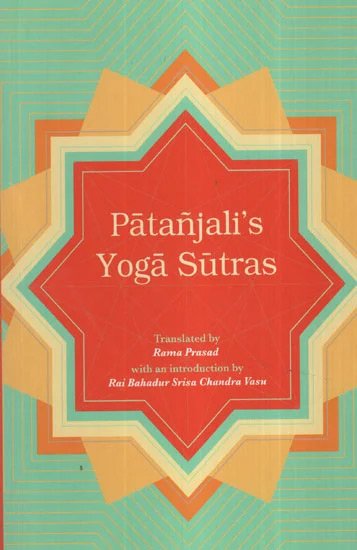Yoga-sutras (with Vyasa and Vachaspati Mishra)
by Rama Prasada | 1924 | 154,800 words | ISBN-10: 9381406863 | ISBN-13: 9789381406861
The Yoga-Sutra 2.10, English translation with Commentaries. The Yoga Sutras are an ancient collection of Sanskrit texts dating from 500 BCE dealing with Yoga and Meditation in four books. It deals with topics such as Samadhi (meditative absorption), Sadhana (Yoga practice), Vibhuti (powers or Siddhis), Kaivaly (isolation) and Moksha (liberation).
Sūtra 2.10
Sanskrit text, Unicode transliteration and English translation of Sūtra 2.10:
ते प्रतिप्रसवहेयाः सूक्ष्माः ॥ २.१० ॥
te pratiprasavaheyāḥ sūkṣmāḥ || 2.10 ||
te—these, prati-prasava—along with the passing out of activity. heyāḥ—that are destroyed, sūkṣmāḥ—(when but) potential.
10. These when but potential, are destroyed along with the passing out of activity.—61.
The Sankhya-pravachana commentary of Vyasa
[English translation of the 7th century commentary by Vyāsa called the Sāṅkhya-pravacana, Vyāsabhāṣya or Yogabhāṣya]
[Sanskrit text for commentary available]
These five afflictions, when their seed-power has, as it were, been burnt up, disappear of themselves along with that Yogi’s mind, when having fulfilled the purpose of its existence, it becomes latent.—61.
The Gloss of Vachaspati Mishra
[English translation of the 9th century Tattvavaiśāradī by Vācaspatimiśra]
The afflictions have been defined and they have been shown to be possessed of four states—the dormant, the tenuous, the alternated and the fully operative—all of which are to be destroyed. How is it that the author of the aphorism has not mentioned the fifth state of the afflictions, the potential, in which the seed-power is, as it were, burnt up? For this reason says:—‘They when but potential are destroyed along with the passing out of activity.’ That which falls within the sphere of man’s effort is of course taught. The destruction of the potential state is not within the sphere of man’s effort. It is, on the contrary, to be destroyed by the passing out of activity; that is, by the mind passing back into its cause, the principle of egoism.
Explains:—‘These five, &c.’ This is easy.—10.
